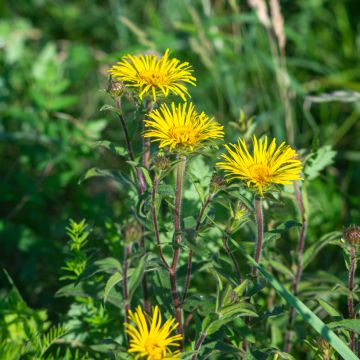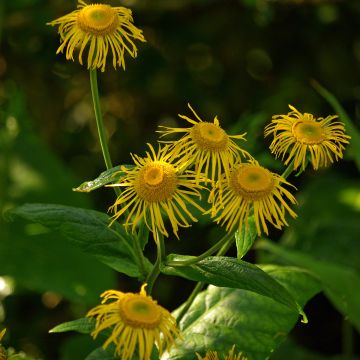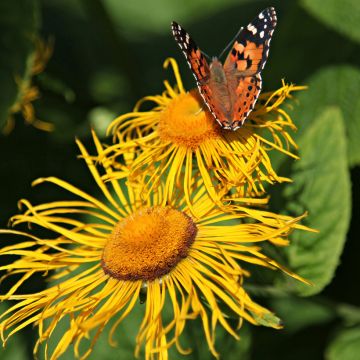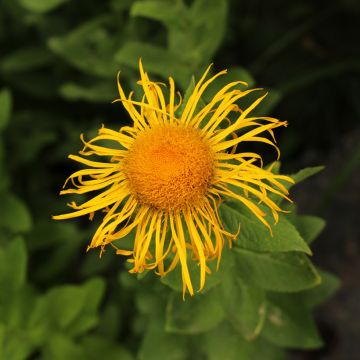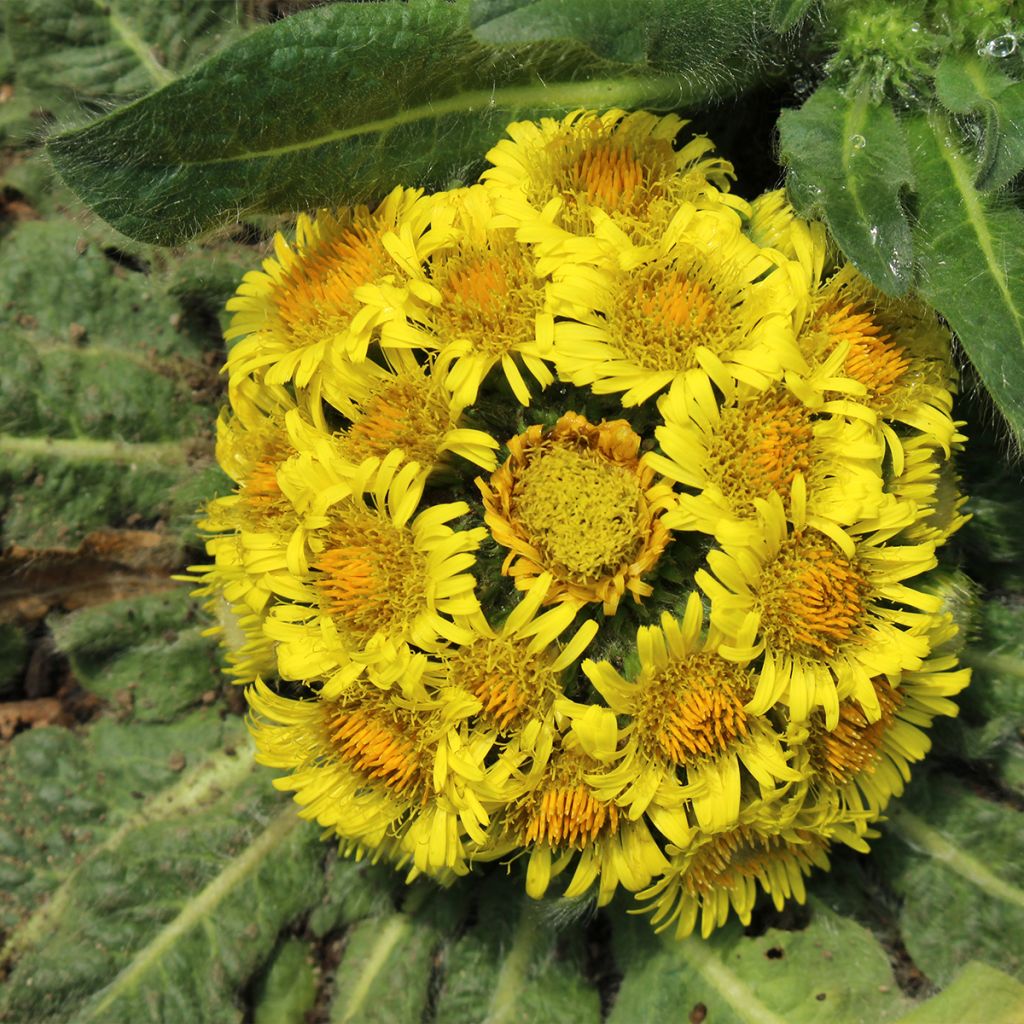

Inula rhizocephala
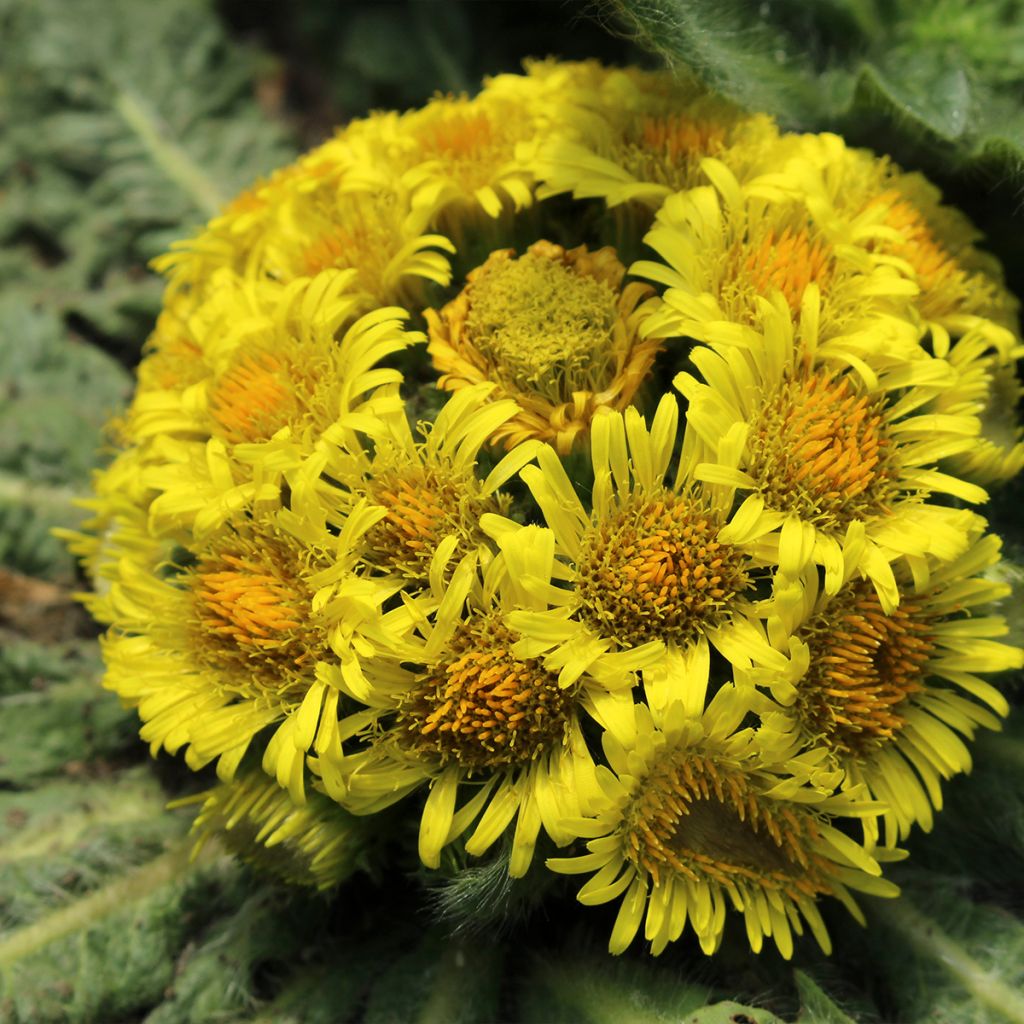

Inula rhizocephala
Inula rhizocephala
Inula rhizocephala
Special offer!
Receive a €20 voucher for any order over €90 (excluding delivery costs, credit notes, and plastic-free options)!
1- Add your favorite plants to your cart.
2- Once you have reached €90, confirm your order (you can even choose the delivery date!).
3- As soon as your order is shipped, you will receive an email containing your voucher code, valid for 3 months (90 days).
Your voucher is unique and can only be used once, for any order with a minimum value of €20, excluding delivery costs.
Can be combined with other current offers, non-divisible and non-refundable.
Why not try an alternative variety in stock?
View all →This plant carries a 12 months recovery warranty
More information
We guarantee the quality of our plants for a full growing cycle, and will replace at our expense any plant that fails to recover under normal climatic and planting conditions.
Would this plant suit my garden?
Set up your Plantfit profile →
Description
Inula rhizocephala, is a Himalayan botanical species, rare in cultivation, that has a unique and quite spectacular appearance. This perennial forms a rosette of very flat leaves, similar to a dandelion. It blooms in summer, on very short stems that cluster together in the centre of the rosette. Its flowers, which resemble small golden daisies, are followed by the formation of small, round brown fruits. This hardy mountain plant thrives in rocky areas and damp soils, in full sun.
Inula rhizocephala belongs to the family of asters, like sunflowers. It is a wild plant native to the Himalayas, Afghanistan, Iran, Pakistan, and Central Asia. In nature, it is found between 2,100 and 4,900 metres above sea level. This species is widespread in a wide range of habitats: coniferous forests, wet meadows along watercourses, river banks, springs, thickets, and rocky and clayey slopes of high mountain plateaus. It is a perennial herbaceous plant, but short-lived, with a taproot. It develops into a ground-hugging rosette. Its leaves are elongated, spoon-shaped, blunt, 3 to 5cm (1 to 2in) long, dark glaucous green, with a well-marked white central vein. They are covered with long, fine, stiff hairs that catch the morning dew. The entire rosette measures about 12-15cm (5-6in) wide. Flowering occurs from June to August. It appears as a peduncle-less, dome-shaped cluster. The cluster consists of flower heads measuring 1.9 to 2.5cm (1in) in diameter. Each head has a yellow central disk surrounded by thin ligulate florets, golden yellow in colour. The fruits are brown, round, finely longitudinally ribbed, covered with short red hairs. They measure less than 3mm (less than 0.1in) in diameter. Under favourable conditions, this Inula can self-seed. The deciduous foliage disappears in winter.
Very hardy, this inula appreciates full sun and chalky soils. Perfect in an alpine rock garden, it adapts quite well in gardens, as long as the soil is sufficiently moist and it's protected from gastropods. It is a plant that stands out due to its resemblance to a large dandelion. Some connoisseurs use it as ground cover in very damp, pebble-strewn areas. To accompany it, consider the full range of plants for a damp rock garden. When cultivated in a pot, it is also very attractive.
Report an error about the product description
Inula rhizocephala in pictures
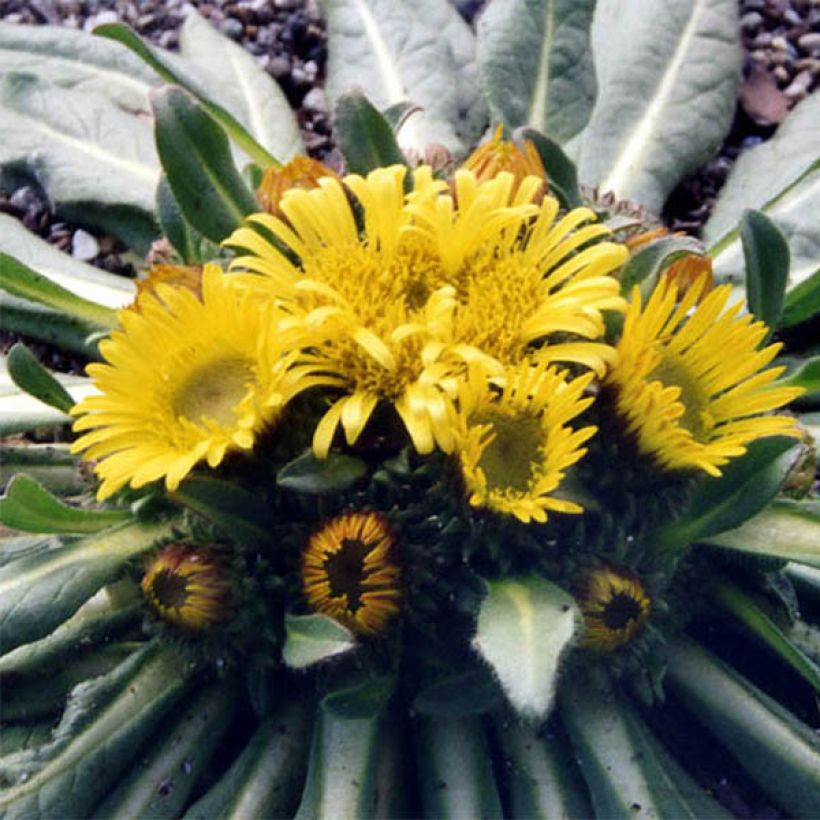

Flowering
Foliage
Plant habit
Botanical data
Inula
rhizocephala
Asteraceae
Himalayas
Other Inula
View all →Planting and care
This inula appreciates humid but rocky or sandy, well-drained soils. It is a mountainous plant, well adapted to alpine rockeries. It can adapt quite easily to lowland areas, in any humid soil sprinkled with gravel. It is a short-lived perennial that readily self-seeds if the conditions suit it.
Planting period
Intended location
Care
This item has not been reviewed yet - be the first to leave a review about it.
Haven't found what you were looking for?
Hardiness is the lowest winter temperature a plant can endure without suffering serious damage or even dying. However, hardiness is affected by location (a sheltered area, such as a patio), protection (winter cover) and soil type (hardiness is improved by well-drained soil).

Photo Sharing Terms & Conditions
In order to encourage gardeners to interact and share their experiences, Promesse de fleurs offers various media enabling content to be uploaded onto its Site - in particular via the ‘Photo sharing’ module.
The User agrees to refrain from:
- Posting any content that is illegal, prejudicial, insulting, racist, inciteful to hatred, revisionist, contrary to public decency, that infringes on privacy or on the privacy rights of third parties, in particular the publicity rights of persons and goods, intellectual property rights, or the right to privacy.
- Submitting content on behalf of a third party;
- Impersonate the identity of a third party and/or publish any personal information about a third party;
In general, the User undertakes to refrain from any unethical behaviour.
All Content (in particular text, comments, files, images, photos, videos, creative works, etc.), which may be subject to property or intellectual property rights, image or other private rights, shall remain the property of the User, subject to the limited rights granted by the terms of the licence granted by Promesse de fleurs as stated below. Users are at liberty to publish or not to publish such Content on the Site, notably via the ‘Photo Sharing’ facility, and accept that this Content shall be made public and freely accessible, notably on the Internet.
Users further acknowledge, undertake to have ,and guarantee that they hold all necessary rights and permissions to publish such material on the Site, in particular with regard to the legislation in force pertaining to any privacy, property, intellectual property, image, or contractual rights, or rights of any other nature. By publishing such Content on the Site, Users acknowledge accepting full liability as publishers of the Content within the meaning of the law, and grant Promesse de fleurs, free of charge, an inclusive, worldwide licence for the said Content for the entire duration of its publication, including all reproduction, representation, up/downloading, displaying, performing, transmission, and storage rights.
Users also grant permission for their name to be linked to the Content and accept that this link may not always be made available.
By engaging in posting material, Users consent to their Content becoming automatically accessible on the Internet, in particular on other sites and/or blogs and/or web pages of the Promesse de fleurs site, including in particular social pages and the Promesse de fleurs catalogue.
Users may secure the removal of entrusted content free of charge by issuing a simple request via our contact form.
The flowering period indicated on our website applies to countries and regions located in USDA zone 8 (France, the United Kingdom, Ireland, the Netherlands, etc.)
It will vary according to where you live:
- In zones 9 to 10 (Italy, Spain, Greece, etc.), flowering will occur about 2 to 4 weeks earlier.
- In zones 6 to 7 (Germany, Poland, Slovenia, and lower mountainous regions), flowering will be delayed by 2 to 3 weeks.
- In zone 5 (Central Europe, Scandinavia), blooming will be delayed by 3 to 5 weeks.
In temperate climates, pruning of spring-flowering shrubs (forsythia, spireas, etc.) should be done just after flowering.
Pruning of summer-flowering shrubs (Indian Lilac, Perovskia, etc.) can be done in winter or spring.
In cold regions as well as with frost-sensitive plants, avoid pruning too early when severe frosts may still occur.
The planting period indicated on our website applies to countries and regions located in USDA zone 8 (France, United Kingdom, Ireland, Netherlands).
It will vary according to where you live:
- In Mediterranean zones (Marseille, Madrid, Milan, etc.), autumn and winter are the best planting periods.
- In continental zones (Strasbourg, Munich, Vienna, etc.), delay planting by 2 to 3 weeks in spring and bring it forward by 2 to 4 weeks in autumn.
- In mountainous regions (the Alps, Pyrenees, Carpathians, etc.), it is best to plant in late spring (May-June) or late summer (August-September).
The harvesting period indicated on our website applies to countries and regions in USDA zone 8 (France, England, Ireland, the Netherlands).
In colder areas (Scandinavia, Poland, Austria...) fruit and vegetable harvests are likely to be delayed by 3-4 weeks.
In warmer areas (Italy, Spain, Greece, etc.), harvesting will probably take place earlier, depending on weather conditions.
The sowing periods indicated on our website apply to countries and regions within USDA Zone 8 (France, UK, Ireland, Netherlands).
In colder areas (Scandinavia, Poland, Austria...), delay any outdoor sowing by 3-4 weeks, or sow under glass.
In warmer climes (Italy, Spain, Greece, etc.), bring outdoor sowing forward by a few weeks.






























